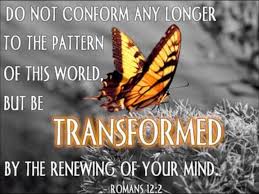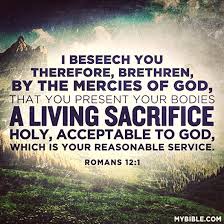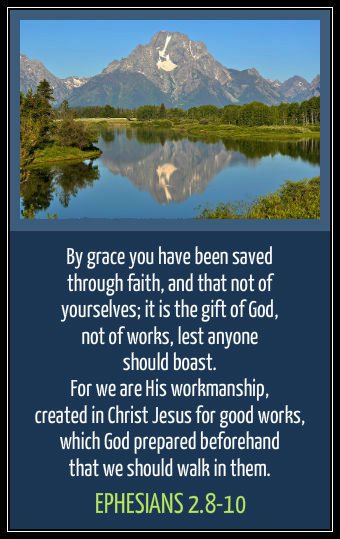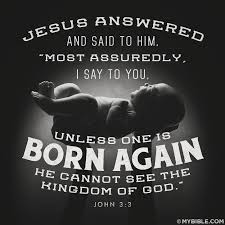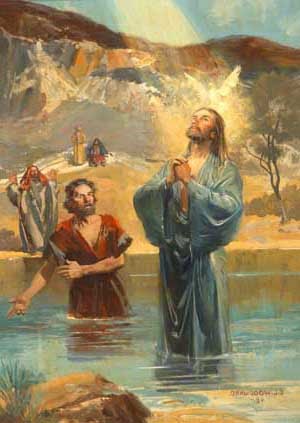This week, we set a new pattern of breaking the Sunday sermon into smaller segments for the blog. I will post them daily and each will be a more involved version of the Sunday preaching. But these should not be a substitute for hearing the word of God in our church — nor are they a substitute for an important aspect of worship: fellowship.
If you live in our area, we invite you to attend services at First Baptist Church of Nokomis. Click our church name to be taken to our website where you can find information about how to find us and when our service takes place. All are welcome! We don’t care what you look like or what you wear. Come as you are because that’s how God loves you.
This Sunday, we talked about the gifts of the Spirit mentioned in Romans 12. The key to Romans 12 is verse 2:
When I first accepted Jesus as my Savior, I made a decision to change the way I did things–to change my behaviors. This worked out well for a time, but in my own strength, I was unable to maintain or make lasting changes. It was impossible for me to make effective or permanent change by my own power.
One year later, I had an encounter with the Holy Spirit and I finally yielded to Him, realizing that it was the job of the Spirit to change me. It wasn’t something I could ever do on my own and it wasn’t even my job to try.
My life has not been the same since. I chose not to conform to what the world said I should be, and permitted the Spirit to transform me!
Romans 12:1 tells me that I am to present my body as a living and holy sacrifice, acceptable to God.
But it isn’t. My body is not a living and holy sacrifice to God. It’s not even close! My body bears the scars of a life lived outside of God’s will; a life of sin and pain. There are physical scars on my hands from fighting, both other people and from taking my frustrations out on inanimate objects. I bear other scars caused by the foolish idea that I was indestructible, as I continually put my life at risk in seeking thrills.
I caused pain and suffering not only in myself but also in others because in my heart I was angry and frustrated. I bear emotional scars and I inflicted them on others because I did not count the cost of my words and was not willing to see what I was doing to the people I loved. And what I did see, I ignored.
How can I present my body as a living and holy sacrifice to God, which is supposed to be my spiritual service of worship?
We were saved by grace, not by works, lest we start to boast. My works cannot save me. But the really good news is that my works cannot PREVENT me from salvation either! And if this is true, then my previous life’s work cannot hinder me or my salvation.
Salvation is a free gift from God offered to everyone! No matter what you have done, God not only can forgive, but he wants to forgive. Christ died on the cross not for perfect people who–all by themselves–kept their bodies and souls clean and unblemished; those people don’t even exist! He died for scarred, broken, filthy sinners like me. He took my sin and yours and paid the price in full!
When the Spirit enters in on the day of our salvation, we are born again and the old life we lived is no more in the sight of God. We are a new creation in Christ!
Working out our salvation means coming to grips with who we were and allowing the Spirit to work in our lives. We are not to conform but to be transformed into the image of who we are in Christ. God does not waste the life I lived. He uses the mistakes and my scars to minister to others.
Praise Him!
Teaser: Tomorrow, we will focus on Romans 12:2, the transformation and renewal of your mind as a new creation in Christ.

